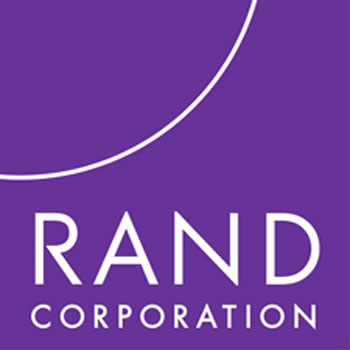| This arrangement has provoked considerable controversy, and many observers have questioned why members of a terrorist organization that the U.S. military initially identified as a hostile target were later designated protected persons whose security was the responsibility of coalition forces... |
The Complicated Situation at Camp Ashraf
 This arrangement has provoked considerable controversy, and many observers have questioned why members of a terrorist organization that the U.S. military initially identified as a hostile target were later designated protected persons whose security was the responsibility of coalition forces. In response to this complex and seemingly contradictory situation, in 2007, Major General Douglas M. Stone, U.S. Marine Corps, then the commander of Task Force 134 (Detainee Operations) (TF-134) and deputy commander of Multi-National Force–Iraq (MNF-I), asked RAND to conduct a rigorous analysis of the circumstances leading to the MeK’s continued residence under MNF-I protection at Camp Ashraf. He asked that the study focus on the following issues:
This arrangement has provoked considerable controversy, and many observers have questioned why members of a terrorist organization that the U.S. military initially identified as a hostile target were later designated protected persons whose security was the responsibility of coalition forces. In response to this complex and seemingly contradictory situation, in 2007, Major General Douglas M. Stone, U.S. Marine Corps, then the commander of Task Force 134 (Detainee Operations) (TF-134) and deputy commander of Multi-National Force–Iraq (MNF-I), asked RAND to conduct a rigorous analysis of the circumstances leading to the MeK’s continued residence under MNF-I protection at Camp Ashraf. He asked that the study focus on the following issues:
• The responsibility imposed on TF-134 to contain and protect the MeK diluted the scarce financial and personnel resources available to support detainee operations in Iraq and resulted in casualties to U.S. troops. Might the detention of this group have been handled in a way that would have reduced these costs and produced a more desirable outcome from the U.S. perspective?
• The GOI wants the MeK out of the country in the near term. Given the constraints of relocating individuals who might face persecution in their home country, how can this best be accomplished?
• Although the MeK problem seems unique, could a similar situation present itself in future counterinsurgency operations? If so, what could be done to avoid the complications that occurred in this case?
Research Questions
As background for the study, we conducted a thorough analysis of the MeK’s formation and internal organizational structure, the activities that resulted in its designation as an FTO, its alliance with Saddam, its consolidation at Camp Ashraf in 2003, its members’ designation as protected persons in 2004, the specific obligations that this designation imposed on MNF-I and particularly on TF-134, and efforts to resettle its members.
From this foundation, we developed six research questions that subsequently guided the study:
• Was the MeK taken into custody under the appropriate terms?
• What are the requirements of international humanitarian law, and particularly the Geneva Conventions, with respect to detainees? Have those requirements been observed in this case?
• What have been the effects of the protected-persons designation?
• Was the decision to consolidate the MeK at a single site a good one? Has the coalition’s supervision of Camp Ashraf been effective?
• What are the options for releasing or relocating members of the MeK? What complications, if any, may affect the release/ relocation process?
• What overarching lessons have been learned from the MeK experience that will be useful to future commanders of detainee operations, to combatant commanders, and to military planners?
Research Approach
This monograph presents the results of RAND’s detailed analysis based on research conducted between October 2007 and December 2008. In addition to an extensive examination of primary and secondary source documents, we interviewed dozens of military and civilian officials in the United States and Iraq, including current and former members of the joint interagency task force (JIATF) responsible for the MeK, the commander of FOB Grizzly, U.S. military detainee operations officers, and officials at the U.S. Embassy in Baghdad, the U.S. Department of State (DOS), U.S. Department of Defense (DoD), Federal Bureau of Investigation (FBI), and National Security Council. These discussions were conducted primarily on a nonattribution basis. Therefore, in most cases, specific names are not cited in the text.
Former members of the MeK at the ARC approached RAND researchers to share their stories. All residents of the ARC were voluntary internees; they had not been detained by coalition forces as security threats. RAND researchers interviewed Alireza Jafardezeh, who directed the MeK’s U.S. lobbying apparatus, the National Council of Resistance, until it was designated an FTO. We also visited Camp Ashraf, where we were given in-depth tours by MeK leaders and were allowed to observe meetings between MeK leaders and JIATF and TF-134 officers.
